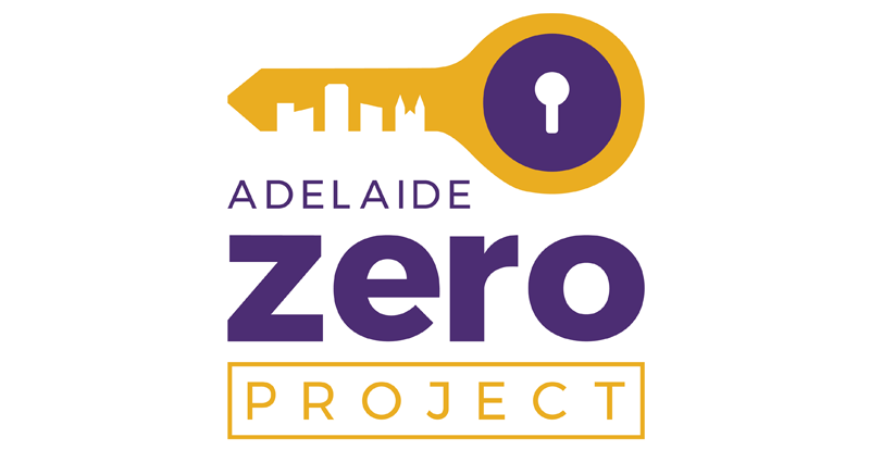Adelaide earmarked to pilot bold US program to end homelessness

A broad coalition of organisations has come together to lead the charge for Adelaide to become the first city outside North America to implement an approach that has seen seven communities achieve Functional Zero* homelessness for veterans, and three communities for chronically homeless people.
“The Don Dunstan Foundation has a proud history of engaging with homelessness issues. We think that in 2017, Adelaide shouldn’t be seeking just to address street homelessness but to end it, just as other cities like Chicago, Detroit and New Orleans are seeking to do,” Foundation Executive Director David Pearson said.
“If we want to be a carbon neutral city, a smart city and a city of live music, then surely we can also be a city that provides a place to call home for our most vulnerable – those sleeping on the streets,” said Mr Pearson.
On any given night there are up to 120 people sleeping rough in the city which is something the Don Dunstan Foundation is keen to address.
The Adelaide Zero Project is modelled on an approach being implemented across a network of 75 US communities, and involves a coordinated, ongoing effort that aims to make service systems work better to match the need for housing with supply.
The project starts with knowing the names of all the people sleeping rough on any given night and reporting publicly on the overall number of people sleeping rough in as close to real time as possible.
The Foundation is working with former Thinker in Residence, Roseanne Haggerty’s Community Solutions to bring this highly successful initiative to Adelaide.
Given its success, the head of Community Solutions’ international work, Jake Maguire is excited that the benefits of the program are being expanded to other countries.
“We’re proud to be working alongside the Don Dunstan Foundation with a view to making Adelaide the first Australian city committed to implementing this Functional Zero approach,” Mr Maguire said.
“The Zero Project has been incredibly successful in harnessing the resources of governments, the community service sector, and the development, housing and real estate industries, as well as with university researchers to achieve Functional Zero homelessness,” Mr Maguire said.
The Adelaide Zero Project has quickly attracted partners from the community, public and university sectors to work towards Functional Zero homelessness in Adelaide.
Bendigo Bank has proudly joined the Adelaide Zero Project as the Principal Partner. Working for the benefit of their customers and the community is an integral part of their business, State Manager SA/NT Joe Formichella explained.
“Our Bank has a long history of taking an active role in helping to build thriving, sustainable communities. Being Principal Partner for the Adelaide Zero Project is another example of our Bank’s commitment to addressing concerns by supporting projects and initiatives that matter most to local people,” said Mr Formichella.
The Social Housing Minister Zoe Bettison MP supports the project.
“South Australia leads the nation in its response to homelessness and this project is yet another example of this,” she said.
“While we often focus on crisis accommodation, the Adelaide Zero Project will help to increase long-term solutions to homelessness.”
Lord Mayor Martin Haese said that the City of Adelaide was proud to support the project.
“The measure of any great city is the way in which we care for our most vulnerable. The City of Adelaide is proud to collaborate with our State Government and community partners to lead the way in achieving Functional Zero homelessness in Australia,” said Mr Haese.
The first phase of the Adelaide Zero Project is focused on understanding how the Functional Zero approach can be applied in Adelaide.
To do this, the Don Dunstan Foundation has commissioned a research project led by the University of Adelaide and Flinders University. Today marks the release of a Discussion Paper to kick-start a conversation on how Adelaide can reach the goal of functional zero street homelessness and when it could be achieved by.
Individuals or organisations wishing to be involved in the project are encouraged to contact the Don Dunstan Foundation via www.dunstan.org.au
-Ends-
Media enquiries interview requests please contact the Message Bureau on 08 8418 7500 or 0419 754 564.
Adelaide Zero Project Partners
Presented by
Don Dunstan Foundation
Principal Partner
Bendigo Bank
University Partners
Flinders University
University of Adelaide
Government Partners
City of Adelaide
Government of South Australia – Department for Communities and Social Inclusion
Government of South Australia – Department of the Premier and Cabinet
Major Partners
Aboriginal Sobriety Group
Anglicare SA
Baptist Care
Broadley Trust
Catherine House Inc
Common Ground
Community Bank
Hutt St Centre
Life Without Barriers
Neami National
OARS Community Transition
Salvation Army
St John’s Youth Services Incorporated
SYC
Uniting Communities
Supporting Partners
Australian Alliance to End Homelessness
Community Solutions
Institute of Global Homelessness
Mental Health Coalition of South Australia
Message Bureau
Shelter SA
Shiny Ideas
Together SA
Women’s Safety Services SA
*Functional zero homelessness is reached when the number of people who are homeless in a city on any given night is no greater than the housing placement availability for that night. This focuses on the need for housing supply to match demand in the short term, and in the longer term, puts the focus on the support services being in place to help people sustain housing.


